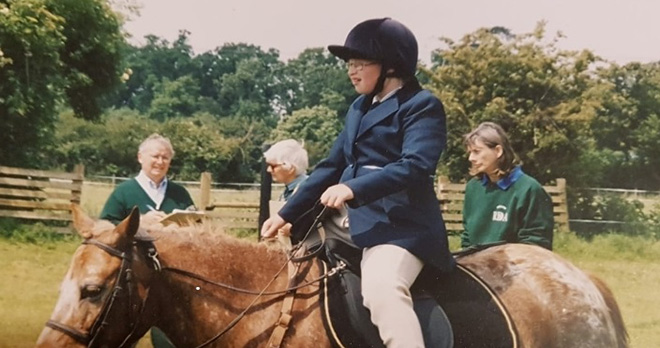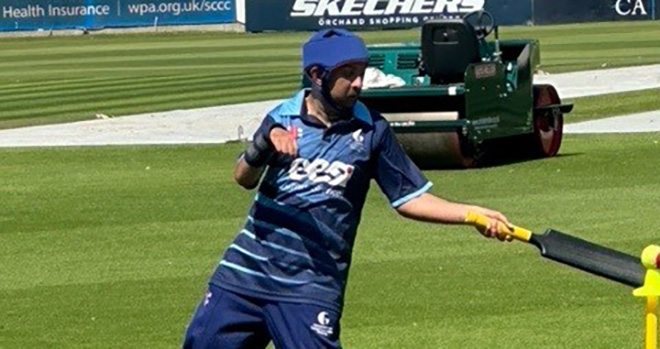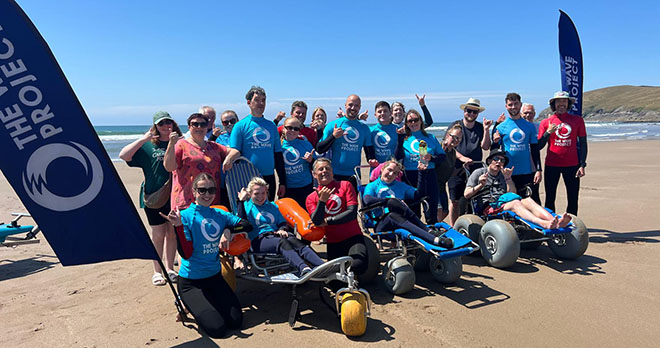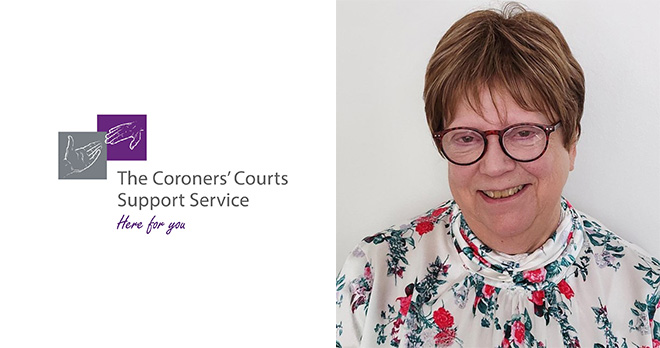The fatal claims process – overview of process for bringing a fatal personal injury claim

Roisin O'Dubhlaoidh explains what you need to know about the process of making a fatal accident claim.
Following the death of a loved one in a fatal road traffic collision, or other sudden event where another party is at fault, it is recommended you explore your entitlement to bring a fatal accident claim.
Here we look specifically at fatal accident claims in the context of personal injuries. Claims are also recommended where the death arises as a result of medical negligence.
Why bring a fatal accident claim?
With so many things to worry about and make arrangements for, you may wonder whether it is worth adding ‘bring fatal accident claim’ to your to do list, especially if you have absolutely no idea what this entails.
In fact, one of the most persuasive reasons for pursuing a fatal accident claim as soon as reasonably practicable, is because of how much pressure it can take off a person’s worry list.
Once solicitors are instructed to assist with a fatal accident claim, they will be able to advise on critical issues such as:
- what to do if your loved one died without a will;
- how to go about obtaining letters of administration;
- liaison with the police and coroner;
- how to address immediate shortfalls in the family’s income;
- assistance with any inquest hearings that may be scheduled.
There are many other examples, but in short not only can solicitors start work towards obtaining compensation to help you and your family secure your future, but they can assist you with all aspects of the investigative processes and administration that will be ongoing as a result of the death.
Initial contact by telephone or email
The first step in understanding whether you have a valid claim, and the ways in which a claim could assist you and your family, is to make initial contact with specialist fatal accident solicitors.
To find out more and contact specialist fatal accident solicitors at RWK Goodman, visit our fatal injury claims page >
Our solicitors are experienced at handling these enquiries and will not push you to deal with more than you are able to in the initial call or contact.
If you are contacting us shortly after your loved one’s death, it may be that we can obtain the details we require from the police, rather than having to take you through everything that has happened with the investigation to date.
The focus of our initial chat will be to obtain a broad understanding of what happened, whether this gives rise to a claim, and to explore how a claim is likely to benefit you and your family. If there are particular things you are struggling with at the time that we are speaking, we can advise on next steps and signpost appropriately.
We will confirm as soon as possible whether we can support you with a claim.
Funding a fatal accident claim – ‘no win, no fee’
We offer our support with fatal accident claims under conditional fee agreements (‘CFA’). A CFA is commonly referred to as a ‘no win, no fee’ agreement.
The greatest benefit of this type of funding agreement is that you should not have any legal fees to pay if the compensation claim is unsuccessful. If this was not the case, many people would be put off from pursuing such a claim for fear of facing an expensive bill at a time of financial uncertainty.
We will explain this in more detail before you instruct us to pursue a claim on your behalf.
Follow-up conversation
In order to provide more detailed advice we will schedule a longer conversation for a suitable time. We will be led by you as to when this should take place.
In order to make things as easy as possible, we may suggest coming to your home to discuss things in person. Alternative options will be meeting at one of our offices or scheduling a video or telephone call. Again, we will be led by you.
The content of the follow-up conversation will differ from case to case and will take into account what your immediate priorities are.
Priorities may include further examination of the police investigation so far and what we need to know before bringing a fatal accident claim, or finalising a Letter of Claim to notify the insurer of our intention to bring a claim. We may wish to dispatch a Letter of Claim quickly, so that we can notify the insurer of any immediate losses that have been suffered (for example, funeral costs), if reimbursement of those losses would relieve some financial pressure.
Once a Letter of Claim has been dispatched, our work will focus on understanding what it was that your loved one did for the benefit of you and your family. This will include your financial reliance upon them, so that we can quantify the claim and prepare for settlement.
Quantifying the claim
We are very aware that the compensation awarded following a death is just a drop in the ocean compared to the value of your loved one’s life.
No award of compensation could ever be enough. But the reality is accessing the compensation that you are entitled to goes a long way to securing your, and your family’s, future. It is enough to have to go through the grieving process without having to worry about your financial security and whether, for example, you can afford to stay in the home that holds years of memories together.
The compensation families are able to secure depends largely on how the family unit operated and whether people within the family were financially dependant on the person they have lost. Compensation can be secured for lost income and pension contributions, as well as for replacement services that may be required now that your loved one is no longer around, such as childcare, cooking, cleaning, gardening, DIY and so on.
All families look different, and we will aim to quantify the losses of the lead claimant, for example the spouse or long-term partner of the deceased, before looking at the losses which can be claimed for other eligible family members. The deceased may not have had a partner or may have been separated. This will not be a bar to a claim, provided that dependency can be shown by at least one person within a statutory list of persons eligible to be classified as ‘dependants’ of the deceased. The easiest way to find out who is eligible to claim and what they are likely to be entitled to, is to speak to a specialist fatal accident solicitor.
Some awards of compensation are set in stone, such as the statutory bereavement award, payable to certain eligible persons, but others are largely contingent on the extent of dependency on the deceased.
For example, if a 40-year-old married, father of two were to be killed in a fatal road traffic accident, his wife would be entitled to claim dependency on his income and pension for the remainder of their natural lives but for the accident (i.e. whichever is the shorter of an average male and female life expectancy for individuals born in the years they were born). As one can imagine, this could be quite a substantial sum.
In addition, the wife could claim for the loss of the husband’s help around the home and with childcare. Again, this could constitute a substantial claim, particularly given that replacement services are calculated on the basis of commercial replacement, i.e. if the deceased routinely undertook four hours of cleaning per week, and a commercial cleaner were to charge £15 per hour for their services, his wife would have an ongoing claim for £60 per week in respect of the support she has lost in respect of cleaning alone.
Quantifying the claim sounds like an uncomfortable process but, in reality, it often takes the form of a pleasant conversation about your loved one and how they bettered your lives during the time you had with them. This is the time when we get to know what your loved one was like and what motivated them in life which in turn allows us to achieve the best outcome for those left behind.
Working together
At RWK Goodman, we take pride in building a team around the client to ensure that all of a client’s needs are well supported.
Where we are instructed to assist with a fatal accident claim, we work closely with the police, coroner and any other relevant organisations from the outset.
We will also enlist the assistance of our colleagues in the private client and inquest teams, where further support is likely to be of benefit. The private client and inquest teams are usually able to add their time to our file, which means that their additional support falls under the “no win, no fee” arrangement you have with us, alleviating any concerns about obtaining additional legal support where it would be of value.
Timescales and settlement of the claim
The timescales for being able to achieve settlement of a fatal accident claim will vary from case to case. It is important to be aware that insurers may prefer to await conclusion of any criminal proceedings before settling the civil claim.
If it appears that the criminal investigation is dragging on and the work to quantify the civil claim is complete, we will consider applying pressure to the insurer to settle the civil claim ahead of the conclusion of criminal proceedings.
It is important to be aware that the criminal standard of proof (‘beyond reasonable doubt’) is much higher than the civil standard (‘on the balance of probabilities’). Therefore a criminal conviction does not need to be secured in order to establish liability in the civil claim.
As a rough guide, individuals should expect a fatal accident claim to take anywhere between approximately nine months to a couple of years to reach settlement. If the claim takes much longer than a year to reach settlement, this will typically be because the police investigation is protracted and / or there is a liability issue that we need to deal with before negotiating settlement.
Other complicating factors may be the complexity of quantifying the claim, such as needing to instruct a financial accountant to quantify the loss of dependency on income claim or a care expert to quantify the loss of dependency on care.
Solicitors will keep you full apprised of any likely delays to settlement and will ensure that interim payments are requested, where appropriate, to ensure that you are not kept out of your compensation for any longer than is strictly necessary.
When a loved one dies, nothing can make life the way it was before. Our hope is that the above demonstrates how bringing a fatal accident claim can deliver peace of mind for you and your family.
Contact our specialist inquest and fatal claims solicitors to find out more about how we might be able to help you with a claim for compensation.
Call now

Here to ensure that lessons are learned
When harm is caused, either to yourself or a loved one, you want to know how it happened and to ensure it doesn’t happen to others.
Read more from our Team Around the Client Magazine
View more articles related to Team Around the Client








